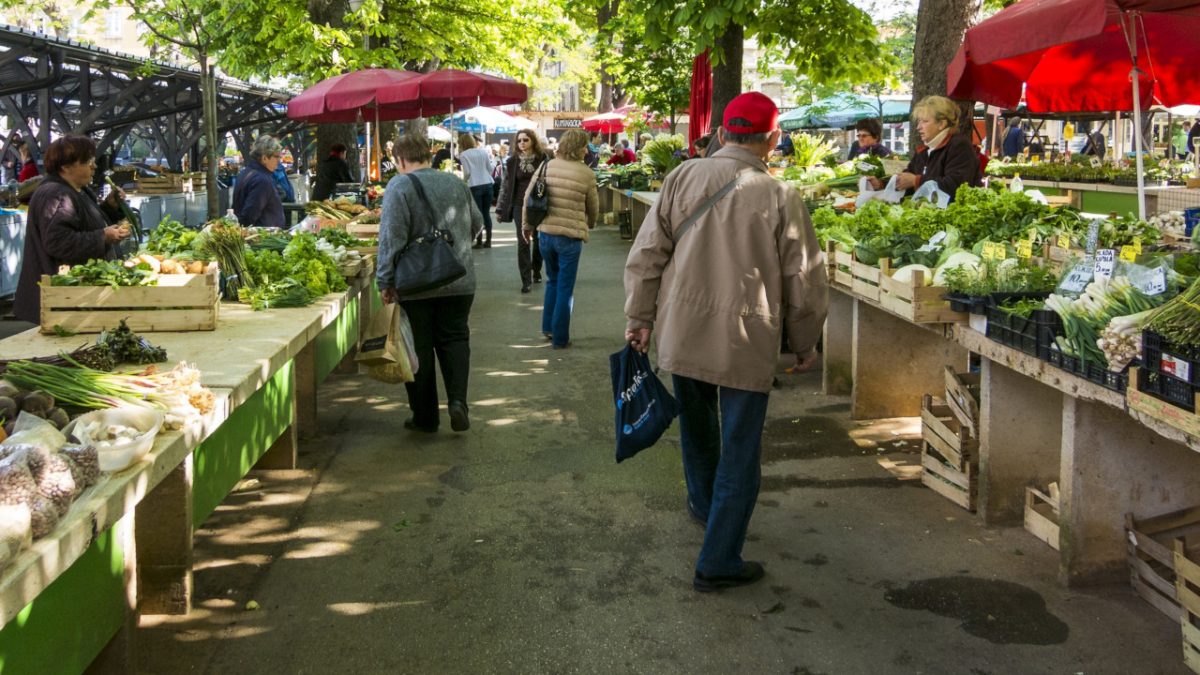Why does trade occur? Fundamentally, trade takes place in order to better the lives of those participating in the trade. You trade money for food because you are hungry and money doesn’t taste very good. Each party values what they are trading away less than what they are receiving in return. That is why the trade occurs.
Another way to look at trade is that it increases efficiency. As people (and companies) trade, they move closer toward an optimized equilibrium. There is an economic principle known as marginal utility. The idea is that the more of a thing one consumes, the less valuable each subsequent unit of the thing becomes. If you are hungry, a hamburger may be very valuable to you. You might even be so hungry that a second burger sounds good too. But how about a third or a fourth burger?
If you were willing to pay $10 for the first burger, does that mean that you would also be willing to pay $100 for ten burgers? Of course not. The utility of the tenth burger is far below that of the first. The reason this is relevant to efficiency is because trade allows people who have more of something than they need to transfer it to someone who values it more highly. You were willing to pay $10 for a burger. Presumably so are others. You aren’t willing to pay $100 for ten burgers. What about $50 for ten burgers? It’s a better deal on a per-burger basis, but you still aren’t hungry enough to consume ten (or even five) burgers.
What to do with all those extra burgers? Trade, of course. At $5 per burger, you can now trade them to people who want them enough to pay $10 a burger and make a nice profit in the process. By the time the trading is complete, everyone in the room will have had a burger and everyone will be (presumably) more satisfied than they were before the trades occurred.
Another important economic principle here is the subjectivity of value. Value is not an intrinsic quality of a good. It is an externally ascribed quality that is unique to each individual. A burger is not objectively ‘worth’ $10. It is ‘worth’ only what someone will pay for it. If you are willing to pay $10 for a burger, that means you value that burger at a minimum of $10. Someone else might value a burger at $8. This means they would pay $8 for a burger, but no more.
So what does all of this have to do with tariffs? As we already discussed, trade increases efficiency. It allows people to balance their subjective values and surplus goods as the economy (which really just means all the people in the economy) moves ever closer to that optimized equilibrium. It never reaches 100 percent optimization, of course, because people’s wants and needs are always changing.
Government intervention in the economy reduces efficiency. Every tax (and a tariff is just a tax) and regulation serves to decrease the efficiency of trade. Remember the $5 burger you sold for $10? Now imagine a 10 percent sales tax being added to it. Now you either have to sell the burger for $11 to get the same $5 profit or you can still sell it for $10, but only receive $4.09 in profit. Either way, efficiency is lost because some of what is being traded is removed from the equation. In the next trade, either you or your customer (or both) will have less to spend.
In a free market, the more trades the better because even trades that only increase efficiency slightly are worthwhile. In a market saddled with government intervention, the loss added to every transaction makes some previously beneficial transactions impractical. The more taxes or tariffs that are added to transactions, the fewer transactions occur and the less efficient life becomes.
Some people who advocate tariffs believe in a concept called protectionism. This is the idea that if the inefficiencies of high taxes are added only to some goods (or to certain suppliers) of these goods, it will protect other goods or suppliers. Imagine that the 10 percent tax added to the burgers only applied to beef. Turkey burgers could be sold tax-free. This might seem to benefit sellers of turkey burgers as some consumers would see turkey as an acceptable substitute good for beef.
Why is this a bad idea? There are several reasons. The first is that the burger market with the tax on beef is still less efficient than the burger market with no taxes at all. The second is that the consumers who opt for turkey instead of beef just to avoid the tax are not as satisfied as if they had their first choice. A third reason is that the artificial advantage given to sellers of turkey burgers will discourage them from seeking out greater efficiencies or improving their quality or customer service. They don’t need to make these improvements, as their products are already cheaper thanks to the protectionist tax system.
Prosperity is maximized when efficiency in the market is maximized. Your dollars go further, your trades are more beneficial, and your options are expanded. On the other hand, wellbeing is reduced as government intervention increases. Every obstacle which is erected in the path of trade reduces the efficiency that promotes prosperity.
Regulations are another form of mandated inefficiency that governments may inject into an economy. Imagine a new law which requires that every burger be sold with a bib. Who would want such a thing? The bib industry, of course. They would love this idea. Such a mandate might be justified as “saving thousands of jobs in the bib industry,” but would that actually improve the economy?
At first glance, it might appear so, but what is seen is often dwarfed by what is unseen. All the money spent buying unwanted bibs would be diverted from other uses. Every dollar that is spent requires forgoing other options. These rejected alternatives are the opportunity cost of your decision. A dollar spent buying a useless bib can’t be spent on something else that is more desirable or productive. These lost opportunities make the bib mandate a net negative for the economy, diverting resources that would have otherwise been used more efficiently.
There are more problems with the bib mandate, however. A protected industry has little reason to innovate or seek out greater efficiency. The bib industry protected by our hypothetical mandate would have no reason to improve their unneeded product or to adapt their industry in response to consumer demand. Those employed in it would not learn new skills or make any meaningful contribution to human wellbeing.
What of trade deficits? Advocates of tariffs often cite a supposed trade deficit as a justification for intervention in the economy. In short, a trade deficit is the amount by which a country’s imports (typically from one country) exceed its exports (to that country.) The idea that a trade deficit justifies a tariff is incredibly flawed, however. Think about it like this: You buy gas for your vehicle from a gas station. What does the gas station buy from you? According to the theory of a trade deficit, the total amount you spend at the gas station represents a “trade deficit” because the gas station (in all likelihood) isn’t buying anything from you. If you are like most people, the same is true of the grocery store, movie theater, and most other places you frequent.
Is this a bad thing? Not at all. On the contrary, attempting to balance your trade with every trading partner would lead to massive inefficiencies and impose all manner of hardship as you sought to trade your particular skills directly to suppliers of the goods and services required to keep you alive.
Instead, you trade your skills to those who need them, accept money in return as an intermediary, and then trade that money to sellers of the goods and services you actually desire. In this way, you maximize your earning potential by focusing on what you do best and obtain the things you need from those whose areas of expertise are different from your own. This idea is known as comparative advantage. If you are good at painting houses and not very good at sewing clothing, it makes sense to spend your time painting houses and using the money you receive for your painting to buy clothing from someone who is better at sewing. This is another way in which a free market increases efficiency.
Imagine if you had to make everything you consumed. Imagine trying to grow your own food, sew your own clothing (from cotton you grew yourself), and build your own house (from trees you cut down). Yes, people did that for centuries, but now imagine trying to do everything required for a comfortable life in the modern age. Can you make a car? A computer? A smartphone? Can you build an air conditioner or perform surgery on yourself?
Why is it that you can enjoy all of these things without knowing how to make or perform most or any of them? The answer is simple. Trade makes all of this possible. Thanks to trade, you can focus on the one thing at which you are the most skilled while still enjoying thousands of other goods and services provided by other people acting according to their comparative advantage.
Economics can be a complicated subject and many people don’t really understand why the economy works the way it does. That’s okay, but learning about economics and economic principles can also be very rewarding because it helps to explain so much about our world and about human behavior. Learning about economics also tends to make one recognize the foolishness of government intervention and central planning. Such interference not only does not improve human wellbeing, it quite literally cannot do so. The efficiency of the free market cannot be improved through taxation or regulation. The imposition of tariffs or mandates cannot get humanity closer to the equilibrium which all of our trades are chasing. The free market may not be perfect (which is ultimately a subjective opinion), but I truly believe it is as close as mankind will ever get to perfection.





